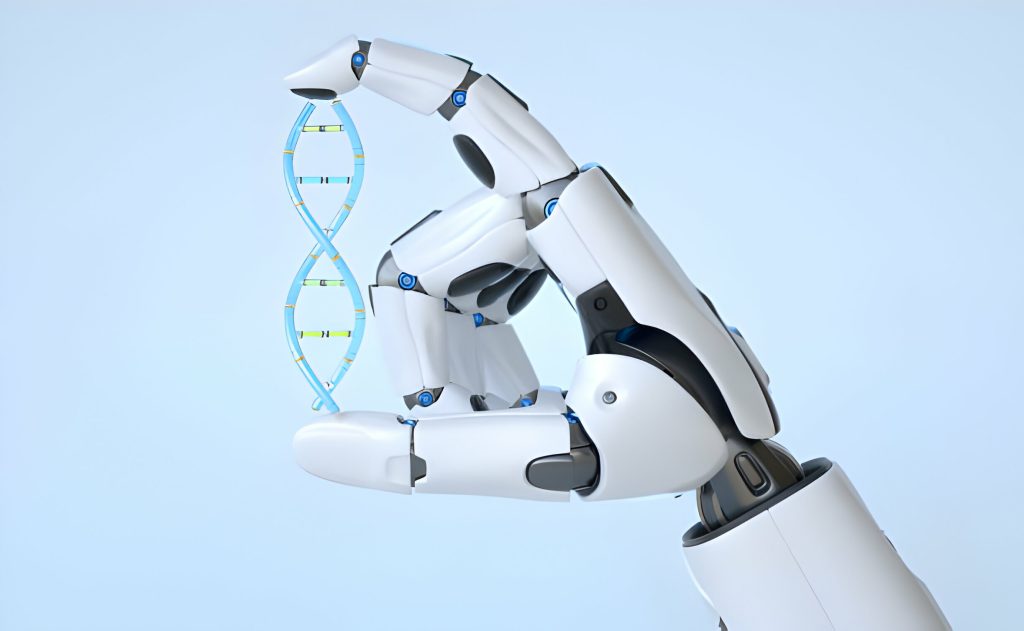With the advancements in artificial intelligence (AI), that dream is becoming a reality. AI has revolutionized healthcare by accurately predicting various diseases based on lifestyle, medical records, and genetic factors. From cardiovascular diseases to cancer and infectious diseases, AI is transforming the way we approach diagnosis and treatment. In this article, we will explore the incredible capabilities of AI in predicting diseases and how it is reshaping the future of healthcare.
Cardiovascular Diseases
AI shows promise in diagnosing various conditions, including cardiovascular diseases. By analyzing patient data and medical records, AI can identify risk factors for cardiovascular diseases such as high blood pressure, cholesterol levels, and family history. Early detection of ocular conditions is also possible with the help of AI. By analyzing retinal images, AI algorithms can detect signs of eye diseases like glaucoma or macular degeneration at an early stage when treatment options are more effective. In addition to diagnosis, AI-based management of diabetes is being explored. With continuous glucose monitoring and machine learning algorithms, AI can help individuals manage their blood sugar levels more effectively. Furthermore, predictive models using AI have shown potential in cancer diagnosis by analyzing genetic markers and imaging data for early detection. Lastly, AI has the potential to improve treatment outcomes for orthopedic conditions by assisting surgeons with surgical planning and precision during procedures.
Ocular Conditions
If you’re concerned about your eye health, AI can assist in identifying and managing ocular conditions. With advancements in technology, AI has become a valuable tool in the field of ophthalmology. It can aid in the detection of glaucoma, retinal diseases, cataracts, macular degeneration, and other vision impairments.
To give you a better understanding of how AI is revolutionizing eye care, here is a table highlighting some key applications:
| Ocular Condition | AI Application |
|---|---|
| Glaucoma detection | AI algorithms can analyze retinal imaging to detect changes indicative of glaucoma. This early detection allows for timely intervention and management. |
| Retinal diseases | AI can accurately identify and classify various retinal diseases such as diabetic retinopathy and age-related macular degeneration based on imaging data. This aids in early diagnosis and treatment planning. |
| Cataract diagnosis | AI algorithms can evaluate images of the lens to diagnose cataracts with high accuracy. This helps doctors determine the severity of cataracts and plan appropriate interventions. |
| Macular degeneration | By analyzing fundus images or OCT scans, AI systems can detect signs of macular degeneration at an early stage, allowing for proactive treatment to prevent vision loss. |
With the help of AI-powered tools, ophthalmologists have access to more accurate and efficient diagnostic methods for ocular conditions. These technological advancements enable earlier intervention, improved patient outcomes, and enhanced vision care overall.
Diabetes
To effectively manage your diabetes, it is important to monitor your blood sugar levels regularly and make necessary lifestyle adjustments. By incorporating AI-based risk assessment tools into your diabetes management routine, you can benefit from personalized treatment plans that are tailored specifically to your needs. This technology enables early intervention strategies, allowing for timely adjustments in medication or lifestyle choices to prevent complications. Additionally, continuous glucose monitoring systems supported by AI algorithms provide real-time data on your blood sugar levels, helping you make informed decisions about insulin dosages and meal planning. With the power of AI at your fingertips, you can take control of your diabetes management and improve your quality of life.
- Diabetes management: Stay on top of your condition with AI-driven tools.
- AI-based risk assessment: Get personalized treatment plans based on your unique needs.
- Personalized treatment plans: Tailored interventions for better outcomes.
- Early intervention strategies: Catch potential issues before they become serious.
Cancer
Take control of your cancer management by utilizing AI-driven predictive models that can assess your cancer risk and aid in early detection and personalized treatment. These advanced AI algorithms analyze various data, including routine blood tests and other patient information, to accurately predict the likelihood of developing cancer. By identifying high-risk individuals at an early stage, AI can enable timely interventions and preventive measures to reduce the chances of cancer progression. Additionally, AI-driven diagnosis ensures accurate and efficient identification of specific cancer types, guiding healthcare professionals in determining the most effective treatment options for each patient. With ongoing research and development in this field, companies like Siemens Healthineers are actively working on creating predictive models that contribute to a world without fear of cancer. Embrace the power of AI to prevent, detect, and manage cancer effectively.
Orthopedic Conditions
Improve your understanding and treatment of orthopedic conditions by harnessing the power of AI-driven predictive models that analyze patient data, such as medical records and lifestyle factors, to provide accurate assessments and personalized recommendations.
With AI advancements in orthopedics, you can expect:
- Orthopedic surgery advancements that enhance precision and outcomes.
- AI in orthopedic rehabilitation to optimize recovery plans for faster healing.
- AI in orthopedic injury prevention to identify risk factors and develop preventive strategies.
- AI in orthopedic imaging for more accurate diagnoses and treatment planning.
- AI in orthopedic prosthetics to create customized solutions for better mobility.
Infectious Diseases
The use of AI in healthcare has shown promise in diagnosing various infectious conditions, such as bacterial infections and viral diseases. AI plays a significant role in infectious disease prediction by leveraging advanced algorithms and machine learning techniques. AI-based tools have been developed for infectious disease surveillance, enabling early detection and monitoring of outbreaks. These tools analyze vast amounts of data, including patient symptoms, demographic information, travel history, and laboratory results to identify patterns and trends indicative of infectious diseases. By accurately predicting disease outbreaks, AI can help public health officials take timely preventive measures to mitigate the spread of infections. Furthermore, the impact of AI in infectious disease management is substantial. It facilitates faster diagnosis, improves treatment planning, enhances patient care coordination, and supports decision-making for effective interventions. Overall, AI has revolutionized the field of infectious disease management by providing valuable insights and improving healthcare outcomes.
Other Predictable Diseases
Now let’s explore other diseases that can be predicted by AI. With the advancements in healthcare AI, it is becoming increasingly possible to predict and prevent a wide range of medical conditions. AI has shown promise in predicting neurological disorders, such as Alzheimer’s disease and Parkinson’s disease. It can also assist in identifying respiratory conditions like asthma and chronic obstructive pulmonary disease (COPD). Furthermore, AI-driven predictive models have the potential to detect autoimmune diseases, including rheumatoid arthritis and multiple sclerosis. Gastrointestinal disorders like inflammatory bowel disease and irritable bowel syndrome can also be predicted using AI technology. Additionally, AI holds potential for predicting mental health conditions such as depression and anxiety disorders. The ability of AI to predict these diseases offers hope for early intervention and improved patient outcomes.
- Predicting neurological disorders
- Identifying respiratory conditions
- Detecting autoimmune diseases
- Predicting gastrointestinal disorders
Read this next:



